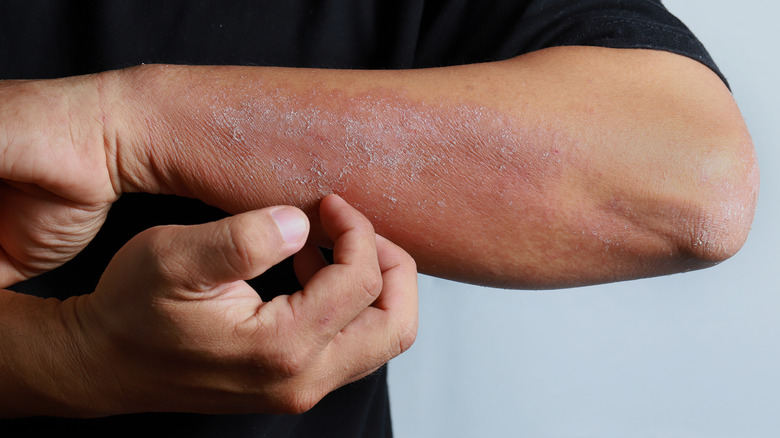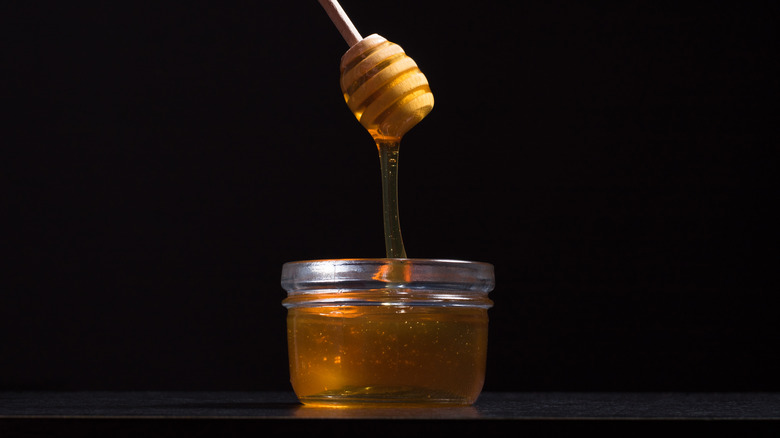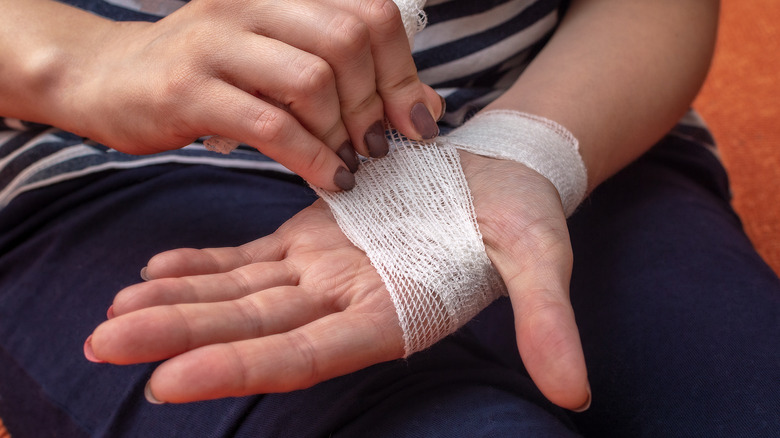How To Treat Eczema Using Honey
Eczema, or dermatitis, is a condition that results in red, itchy skin. There are many types of eczema, according to the American Academy of Dermatology (AAD), and these include atopic dermatitis, contact dermatitis, and hand eczema. Atopic dermatitis is the most common form of this condition, and cases can range from mild to extreme. Contact dermatitis is another common form of eczema that lead to itchy, red skin that turns into blisters or hives, per Medical News Today.
Since there is no cure for eczema, it is important to manage your symptoms to prevent flare-ups. Treatments for eczema vary because it can develop from different causes. Some examples of treatment include topical creams, antihistamines, and light therapy. Alternative methods for treating eczema are also an option. While there isn't a lot of research on the topic, the National Eczema Association (NEA) reports some are worth noting — and honey happens to be one of them.
Honey has many healing properties
While you might think of honey as a kitchen staple, it's been used to treat burns and wounds for centuries. In fact, it possesses antibacterial, antiviral, and antioxidant properties, which make it ideal for treating wounds, ulcers, and infections. For this reason, it's gained attention for treating eczema, too. There are many types of honey available, and the best kinds are made from pure honey, reports WebMD.
Manuka is a type of honey from New Zealand and Australia that is regarded for its healing qualities because it contains high amounts of the antimicrobial compound methylglyoxal (via WebMD). Evidence shows that Manuka honey and other types of medical-grade honey may be the best kinds of honey to use medicinally. When it comes to eczema, a small 2017 study published in the journal Immunity, Inflammation, and Disease showed that Manuka honey was "potentially effective" in treating atopic dermatitis.
How to treat eczema with honey
When making a honey mixture, you should always start with clean hands and apply a layer of honey on the eczema. Cover the area with a gauze, leave on overnight, and wash the area in the morning. For the best results, repeat for one week, per WebMD.
The National Eczema Association reports that honey has become more popular in recent years for treating eczema, and while it appears to be safe, it should be used with caution. You should discuss it or any alternative treatments with your doctor. While an allergic reaction to honey is unlikely, it can happen — especially if you're allergic to bee stings or pollen. If you have any concerns, play it safe and test your skin. Apply a small amount of honey to a small area and watch for any symptoms that include itching, redness, or a rash. You should also never give honey to babies under one year of age because it could give them botulism, per WebMD.



